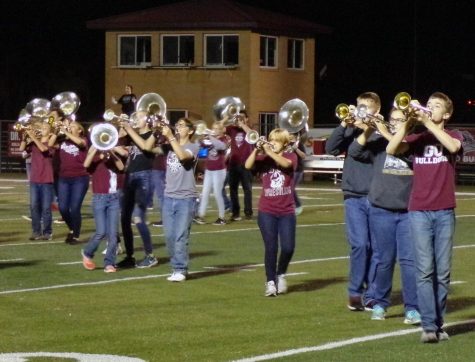Social media grabs a generation
Retweets. Favorites. Followers. Likes. Hashtags. Such is the life of the modern American teenager, immersed in today’s world of social media. In a society that has grown to rely on the internet for many aspects of daily life, the ability to interact with anybody in the world at any time has become a way of life. Social networks such as Twitter, Instagram, Vine, and Snapchat have revolutionized communication to the point where millions of people depend on them every day. However, many have been opposed to this movement, citing cyberbullying, an overdependence on technology, distractions, and most of all, a lack of face-to-face communication in our generation.
“I think that social media is a really cool form of technology, but it can become very time consuming if you aren’t careful,” senior Aarika Froehlich said.
Froehlich, like many other teenagers, uses social media quite a bit.
“I use social networking for around two or three hours a day I would guess. I check in the morning, in between almost all of my classes, during lunch, and after practice,” Froehlich said.
In contrast, senior Savannah Swaringam isn’t as reliant on social networking.
“I use social media about once a day, for a few minutes unless I have to communicate with someone,” Swaringam said.
Though the two are different in their usage of social networking, they agree that it holds many advantages for students.
“Social media is really good for students because it’s an easy way to catch up on what’s going on,” Froehlich said. “It makes it easier for students to talk to or work with each other and for teachers to communicate with students,” Swaringam said.
However, many disadvantages exist, especially distraction.
“I think social media is a huge distraction for students whether that means in class, or after school when they’re trying to study or do homework,” Froehlich said.
The urge to be “popular” on social networks causes many to feel pressured into using them to gain a social standing in real life.
“As much as I want to say I don’t care about the amount of likes or favorites or followers I have, I definitely do,” Froehlich said. “It’s stupid because it’s pretty pointless, but it really boosts self- esteem whenever someone follows you or likes your post. It makes you feel kind of important, I guess.”
Pop culture, trends, jokes, and memes are an integral part of social media, and some feel that those who don’t use it may feel a bit left out.
“I would say that I honestly think people who don’t use social media are out of the loop. It’s sad, but I definitely think you will miss out on stuff, even if it’s just trivial stuff. Social media has caused me to become distracted a lot more easily, but it has also kept me informed on what others are doing and what events are happening,” Froehlich said.
Besides the pressure to understand the references used in social media, many feel a pressure to have social networking accounts in order to connect with others.
“I would say that there is social pressure to use social network. If you meet someone and then you want to keep in touch, you probably ask for their twitter handle or their Instagram username before anything else. People expect everyone else to have the same social networks as them,” Froehlich said.
For better or worse, social media is a tool that, if removed, would devastate the world’s population. Most feel that it has evolved beyond a trend and is now a part of daily life.
“I think that it is good for people to communicate with each other but besides that I don’t think it is really necessary. However, it is definitely here to stay, at least for a long while,” Swaringam said.







